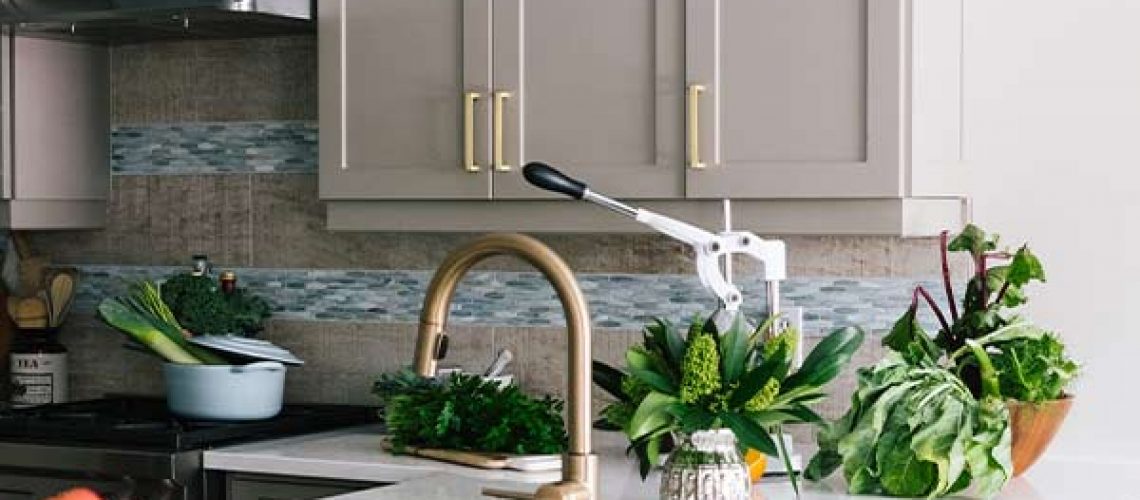When looking at ways to reduce energy usage in your home, whether to be more eco-friendly, to reduce your bills, or a combination of the two, the kitchen is an excellent place to start.
Cooking, cooling and cleaning account for a significant portion of your home’s energy usage. Here are a few things that you can do to make your kitchen more energy efficient.
- Save energy while you cook
When cooking, heat water in a kettle rather than on the stove and transfer it to the pan when boiled. The insulation in kettles ensures that only a little heat is lost, meaning the water gets hotter much faster. Ensure you only put in as much water as you actually need as boiling extra uses more energy.
Likewise, keep pots and pans covered to better retain heat when cooking on the stove. Turn off the hob a little before the food is fully done, as it will continue to cook in the residual heat. This is especially the case with electric stoves, which take a while to cool down.
Finally, when using the oven, look through the door rather than opening it to check on the progress of the food. Every time you open the door a large amount of the heat inside escapes and so the overall cooking time is increased.
- Use the right size items to meet your needs
Bigger is definitely not better when it comes to energy efficiency. This is certainly the case for appliances such as fridges and freezers. Many modern types have been designed to be energy efficient; however, this saving is often canceled out by people having a much bigger one than they actually need.
When picking out a fridge or freezer, it’s important to be realistic about how much storage space you do require. It’s always better to make do with a smaller model when possible.
This downsizing can likewise be applied to cooking. When using the stove, select an appropriate sized pot for the burner. If it’s too small, then the food will take longer to heat, and if it’s too big, then the pan won’t cover the hob and a lot of energy will be wasted.
Also, if you are heating something small or just a single dish, you can reduce energy usage by up to as much as eighty percent by using either a toaster oven or a microwave rather than the main oven.
- Consider energy-efficient light bulbs
Lights account for a significant portion of a home’s energy usage and kitchens tend to have rather a lot. By switching out your regular light bulbs for either LED or CFL ones, and by remembering to turn off the lights when you are done, you could make quite drastic energy savings here.
LED bulbs use much less electricity than standard ones and can last up to ten times longer. CFL bulbs, while not quite as efficient as LED ones, will still last up to four times longer than standard bulbs. These ones also provide a little more light than LED ones.
- When replacing your appliances opt for energy-efficient models
Improving technology and an increased focus on environmentalism means that most kitchen appliances these days have been designed with energy saving in mind. An easy way of determining the efficiency of an item is to take a look at its Energy Star score. The higher the number, the better.
Any savings made here is further boosted by ensuring that you unplug these appliances when they are not in use. Although many come with a standby mode, they can still be sucking up quite a lot of electricity even when they are seemingly powered down.


